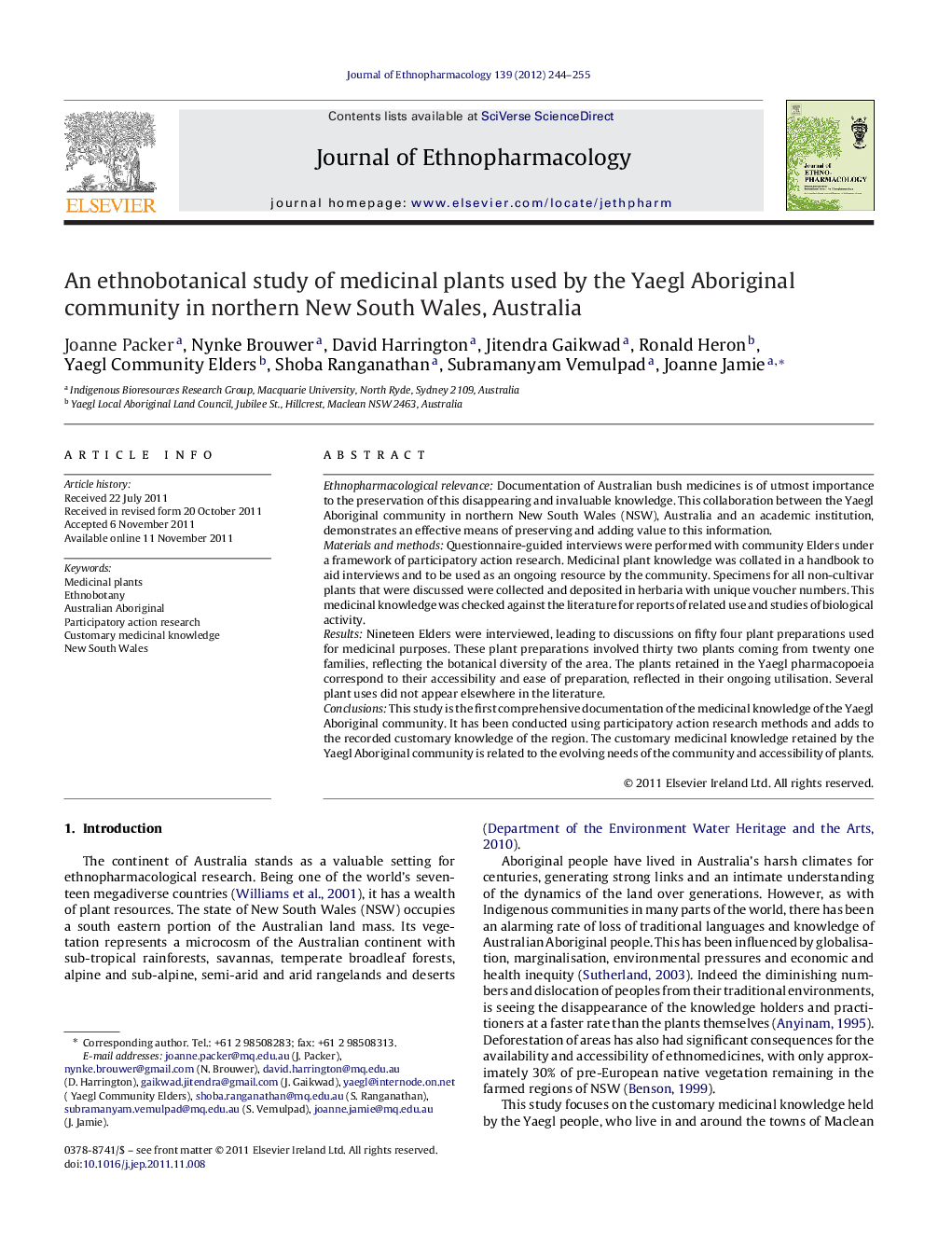| Article ID | Journal | Published Year | Pages | File Type |
|---|---|---|---|---|
| 5839138 | Journal of Ethnopharmacology | 2012 | 12 Pages |
Abstract
Ethnopharmacological relevanceDocumentation of Australian bush medicines is of utmost importance to the preservation of this disappearing and invaluable knowledge. This collaboration between the Yaegl Aboriginal community in northern New South Wales (NSW), Australia and an academic institution, demonstrates an effective means of preserving and adding value to this information.Materials and methodsQuestionnaire-guided interviews were performed with community Elders under a framework of participatory action research. Medicinal plant knowledge was collated in a handbook to aid interviews and to be used as an ongoing resource by the community. Specimens for all non-cultivar plants that were discussed were collected and deposited in herbaria with unique voucher numbers. This medicinal knowledge was checked against the literature for reports of related use and studies of biological activity.ResultsNineteen Elders were interviewed, leading to discussions on fifty four plant preparations used for medicinal purposes. These plant preparations involved thirty two plants coming from twenty one families, reflecting the botanical diversity of the area. The plants retained in the Yaegl pharmacopoeia correspond to their accessibility and ease of preparation, reflected in their ongoing utilisation. Several plant uses did not appear elsewhere in the literature.ConclusionsThis study is the first comprehensive documentation of the medicinal knowledge of the Yaegl Aboriginal community. It has been conducted using participatory action research methods and adds to the recorded customary knowledge of the region. The customary medicinal knowledge retained by the Yaegl Aboriginal community is related to the evolving needs of the community and accessibility of plants.
Keywords
Related Topics
Health Sciences
Pharmacology, Toxicology and Pharmaceutical Science
Pharmacology
Authors
Joanne Packer, Nynke Brouwer, David Harrington, Jitendra Gaikwad, Ronald Heron, Yaegl Community Elders Yaegl Community Elders, Shoba Ranganathan, Subramanyam Vemulpad, Joanne Jamie,
